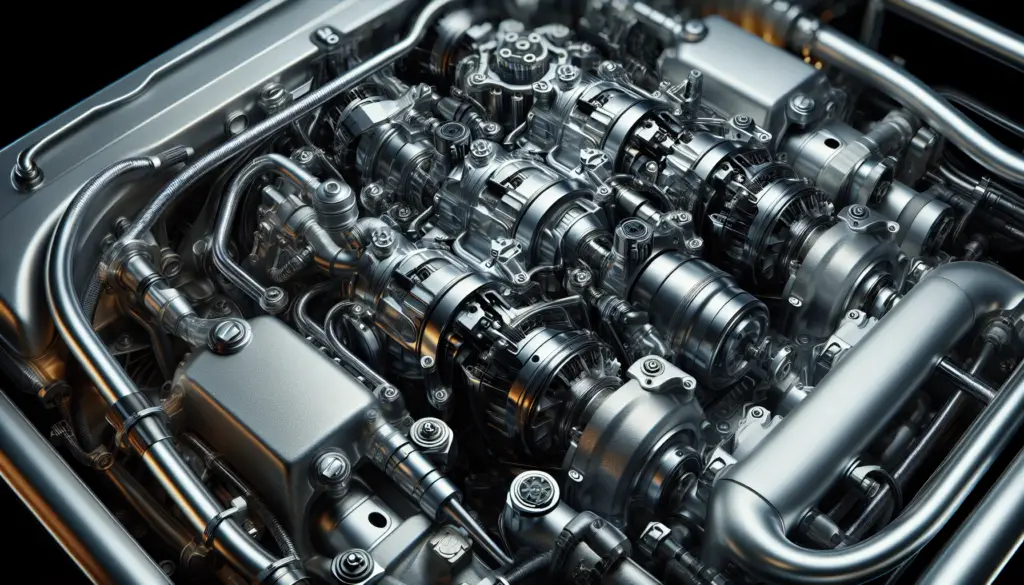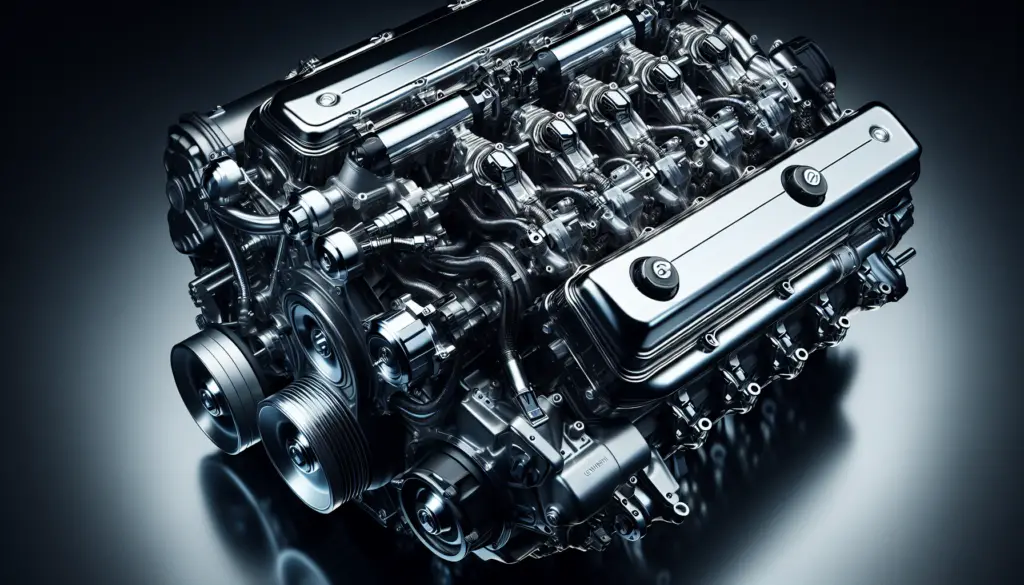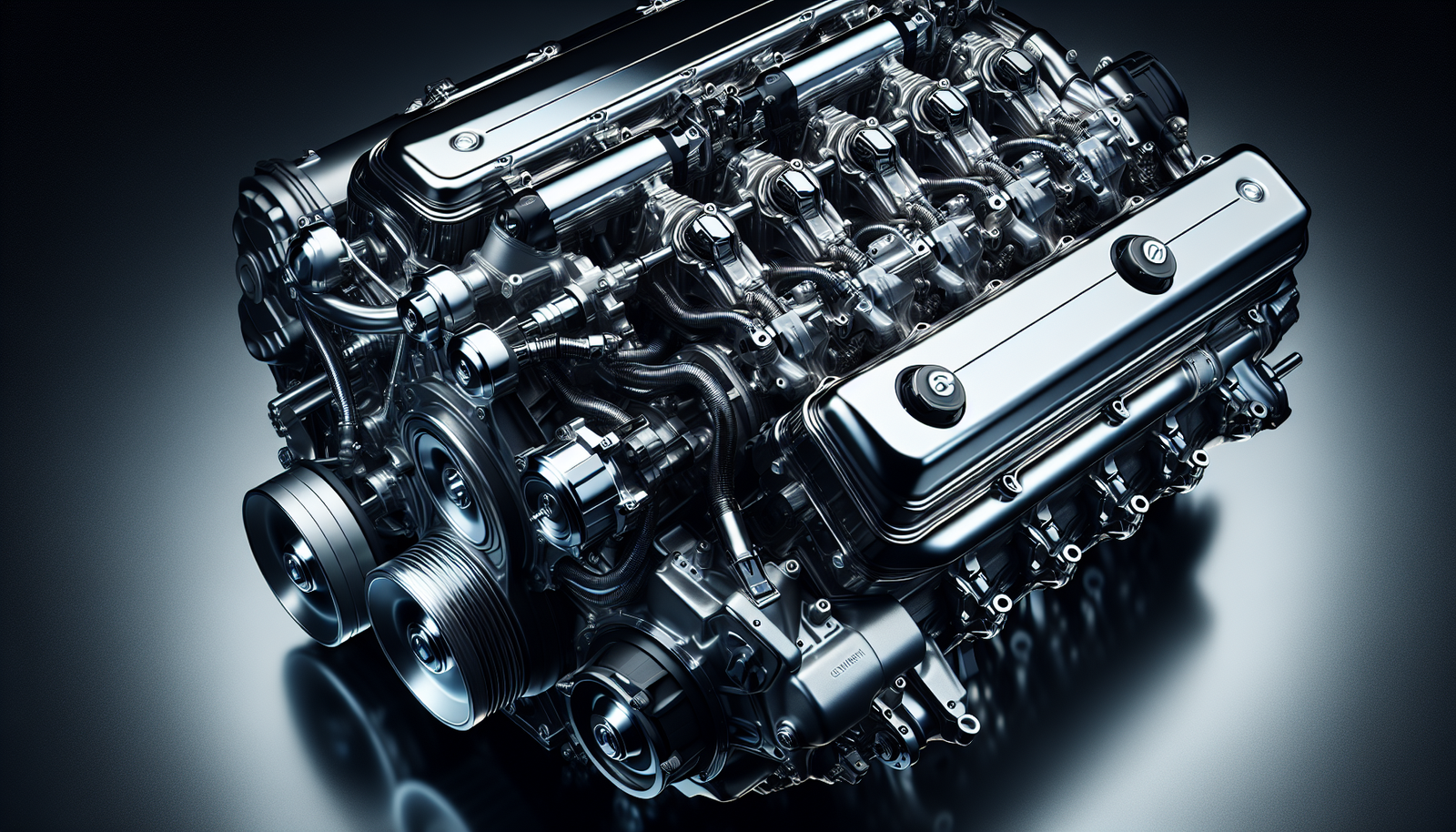Navigating the open seas with the wind in your hair and salty mist in your face can bring immense joy, but maintaining efficient fuel consumption on your boat might be a challenge that often capsizes your fun. The tension of ensuring your boat engine’s fuel efficiency can undoubtedly put a damper on your seafaring adventures. Fear not, because this article is all about the top ways to improve fuel efficiency in your boat engine. Time to learn and apply some practical and simple techniques to boost your engine’s fuel efficiency, so you’ll be able to enjoy more hours of sailing without worrying about guzzling gas or diesel. Let’s guide you towards smoother and more economical journeys across the blue expanses.

Understanding Fuel Efficiency Basics
Boating is a great way to relax and enjoy the water. But, as with any vehicle, running a boat needs fuel. Understanding how fuel efficiency works in your boat can help you save money and reduce your impact on the environment.
Basics Of How A Boat Engine Works
Much like a car engine, a boat engine converts fuel into power, which is used to propel the boat through the water. This process has several steps: air and fuel are drawn into the engine, where they are combined and ignited. This produces combustion, which drives the pistons and generates power. The exhaust gases are then expelled.
Factors Affecting Boat Fuel Efficiency
Various factors can influence fuel efficiency. Some of these are outside your control, like weather conditions, water currents, and hull design. Others are within your control, such as boat speed, engine maintenance, and weight distribution. It’s important to understand these factors so you can optimize your boat’s fuel efficiency.
Importance Of Optimizing Fuel Efficiency
Improving your boat’s fuel efficiency isn’t just about saving money. It’s also about reducing air pollution and conserving resources. Plus, a more fuel-efficient boat often means a smoother, more enjoyable ride.
Maintenance Of The Boat Engine
Keeping your boat engine in good shape is key to maximizing fuel efficiency. Follow these tips to maintain your engine.
Regular Engine Servicing
Regular servicing is crucial for your boat engine. This ensures it remains in peak condition, operating at maximum efficiency. During a service, the engine should be thoroughly checked and any potential issues identified.
Cleaning Fuel Injectors
Dirty fuel injectors can obstruct the flow of fuel into the engine, lowering its efficiency. Clean injectors regularly to ensure a smooth, steady supply of fuel.
Replacing Old Parts
Old, worn out parts can reduce engine performance and fuel efficiency. Replace them as needed to ensure your engine operates at its best.
Checking The Engine Oil
Good quality engine oil can significantly affect fuel efficiency. Check the oil regularly and change it when necessary.
Optimizing Propeller Performance
The propeller plays a vital role in your boat’s performance and fuel efficiency. It converts engine power into forward motion.
Importance Of Propeller Selection
Choosing the right propeller for your boat can improve its fuel efficiency. Factors to consider include the size, pitch, and material of the propeller.
Checking Propeller Condition
Regularly inspect the propeller for damage or wear. A damaged propeller can reduce fuel efficiency and cause other problems, such as vibration or difficulty steering.
Fixing Prop Damage
If your propeller is damaged, it should be repaired as soon as possible. Depending on the nature of the damage, this might involve straightening the blades, rebalancing the propeller, or even replacing it altogether.
Balancing Prop
A balanced propeller will spin more smoothly and efficiently. If you notice vibrations or an uneven spin, have your propeller balanced.

Keeping The Boat Light
The heavier your boat is, the harder the engine has to work to move it, reducing fuel efficiency. Here’s how you can keep your boat light.
Avoiding Overloading The Boat
Keep your boat’s weight within its capacity. Overloading the boat can strain the engine and use more fuel.
Practicing Efficient Packing
When packing for a trip, think about weight distribution. Try to pack light and distribute weight evenly across the boat.
Getting Rid Of Unnecessary Items
Rid of any items you don’t need for your journey. This will reduce weight, making the boat more fuel-efficient.
Distributing Weight Evenly
An uneven weight distribution can make the engine work harder, using more fuel. Make sure weight is distributed evenly across the boat.
Maintaining Hull Condition
A clean, well-maintained hull is crucial for fuel efficiency. It reduces water resistance, allowing your boat to travel more efficiently.
Regular Hull Inspection
Regularly inspect the hull for damage, wear, and fouling. Pay special attention to the areas below the waterline.
Keeping The Hull Clean
A dirty hull can increase water resistance, reducing fuel efficiency. Clean your hull regularly to remove algae, barnacles, and other marine growth.
Repairing Hull Damage
If you notice any damage to the hull, repair it as soon as possible. Damage can increase water resistance and reduce fuel efficiency.
Anti-Fouling Solutions
Anti-fouling paint can help prevent marine growth on the hull. This reduces water resistance, improving fuel efficiency.
Smooth And Steady Sailing
How you operate your boat can significantly impact its fuel efficiency. Here are some tips for smooth and steady sailing.
Avoiding Sudden Acceleration
Sudden acceleration uses more fuel. Instead, gradually increase your speed.
Maintaining A Steady Speed
Maintaining a steady speed is more fuel-efficient than constantly accelerating and decelerating.
Planning The Course Well
Plan your course to avoid unnecessary detours and to make the most of currents and tides.
Reducing Idling Time
Avoid leaving the engine running when not in use. Idling uses fuel and wears out the engine.
Use Of High-quality Fuel
The quality of the fuel you use can also affect your boat’s fuel efficiency.
Choosing The Right Octane
Using the wrong octane fuel can damage your engine and reduce fuel efficiency. Always use the octane recommended by your engine manufacturer.
Avoiding Ethanol Blends
Ethanol can be harmful to boat engines and reduce fuel efficiency. Avoid ethanol-blended fuels if possible.
Importance Of Fuel Stabilizers
fuel stabilizers can help maintain the quality of your fuel, improving fuel efficiency.
Buying Fuel From Reputable Suppliers
Purchase your fuel from reputable suppliers. This will ensure that you’re getting high-quality fuel.
Boat Design And Efficiency
The design of your boat impacts how it moves through the water, which in turn affects its fuel efficiency.
Choosing Efficient Boat Designs
Some boat designs are more fuel-efficient than others. When buying a boat, consider its hull shape, weight, and size.
Understanding The Role Of Boat Shape
The shape of your boat, particularly the hull, affects how it moves through the water. A well-designed hull reduces drag and improves fuel efficiency.
Using Hydrofoils To Reduce Drag
Hydrofoils can lift the boat out of the water, reducing drag and improving fuel efficiency. Consider fitting your boat with hydrofoils if it doesn’t already have them.
Impact Of Boat Size On Fuel Efficiency
Larger boats need more power to move through the water, so they use more fuel. Smaller boats are typically more fuel-efficient.
Upgrading The Boat Engine
Upgrading your boat’s engine can significantly improve its fuel efficiency.
Benefits Of Engine Upgrades
A more modern, efficient engine can improve your boat’s performance and reduce fuel consumption. It can also be more reliable and require less maintenance.
Choosing The Right Engine For Your Boat
When choosing a new engine, consider factors like power output, fuel type, and the weight of the engine. An engine that’s too powerful for your boat can be wasteful, while an engine that’s not powerful enough can strain and use more fuel.
Newer Engine Technologies
Newer engines often have advanced technologies designed to improve fuel efficiency, such as fuel injection systems and turbochargers.
Knowing when to upgrade the engine
If your boat’s engine is old, unreliable, or consuming more fuel than it should, it might be time for an upgrade.
Taking Advantage Of Technology
Modern technology offers many ways to improve fuel efficiency in your boat.
Use Of Fuel Efficiency Apps
There are many apps available that can help you monitor your boat’s fuel consumption, allowing you to see how your habits affect fuel efficiency.
Understanding Fuel Management Systems
Fuel management systems can provide real-time information about your boat’s fuel usage, helping you to make adjustments and optimize fuel efficiency.
Smart Boat Technologies
Increasingly, boats are being fitted with smart technologies that can optimize engine performance, monitor fuel usage, and even automate some aspects of boat operation.
GPS and Electronic Navigation Systems
GPS and electronic navigation systems can help you plan efficient routes, avoid unnecessary detours, and make the most of currents and tides. These systems can help you save fuel by ensuring you’re following the most efficient route.


[…] is essential to optimize the engine’s performance, offering seamless power delivery and fuel efficiency. Essentially, you can think of the intake manifold as the bridge between the carburetor and the […]
[…] always loved spending long hours out on the water, but lately, you can’t help but notice the increasing fuel costs when you take your boat out for a ride. If only there was a way to make your boat more […]